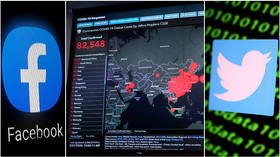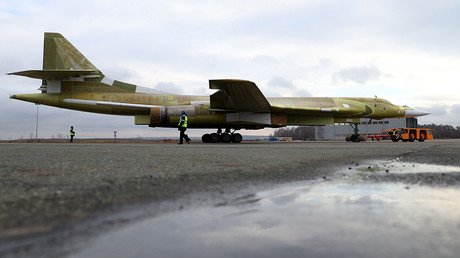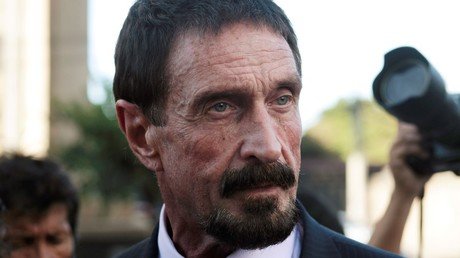‘We’ve seen no evidence’: Social media networks blow up US officials’ claim of ‘Russian coronavirus disinformation campaign’

Social media titans Twitter and Facebook poured cold water on the State Department’s latest conspiracy theory, insisting they’d seen no sign “Russian operatives” were spreading falsehoods about Covid-19 on their platforms.
Weighing in after a number of senior State Department officials told AFP that thousands of “Russian malign actors” were hawking “disinformation about coronavirus” on social media, two of the largest networks have cast serious doubt on the assertion.
“In general, our investigation hasn’t substantiated this claim,” Twitter’s head of site integrity Yoel Roth said this week at the RSA cyber security conference in San Francisco, adding, “Our experience thus far is no – we haven’t identified anything like that.”
Also on rt.com Democrats resurrect ‘Russiagate’ to go after both Trump and Bernie Sanders, hide their own election trickeryThough US officials stated the supposed disinfo op had been running since mid-January – which they said included baseless claims that the lethal coronavirus gripping China was an American effort to “wage economic war” on Beijing – the State Department has yet to offer any backing for its theory, even when explicitly asked for it.
“We have asked [the State Department] for any evidence that they have to support this, and we haven’t received anything yet,” Nathaniel Gleicher, Facebook’s head of cybersecurity policy, said at the same tech conference.
When you don’t share the evidence behind it, but you make a broad claim, it becomes incredibly difficult to understand if anything is there. But the theory that something is there is off to the races.
Similar ‘broad claims’ regarding Russian online influence operations have featured heavily in mainstream media reports since the 2016 US presidential election, driven by leaders in the Democratic Party, who blamed their shock loss to Donald Trump squarely on Moscow.
Also on rt.com Trump mocks ‘fake news’ for running ‘Russian Sympathizer Bernie’ smear, but doesn’t miss a chance to score pointsThough the sweeping ‘Russiagate’ narrative advanced in 2016 has largely fallen apart, the idea is making a comeback as the 2020 contest fast approaches. Nameless intelligence officials have already begun whispering into the ears of major media outlets, insisting the Kremlin is going all-out to support Vermont Senator Bernie Sanders this time around. Keeping with the trend, no evidence has yet been furnished to support the assertion, with readers again left to take the word of anonymous sources as gospel.
Like this story? Share it with a friend!














